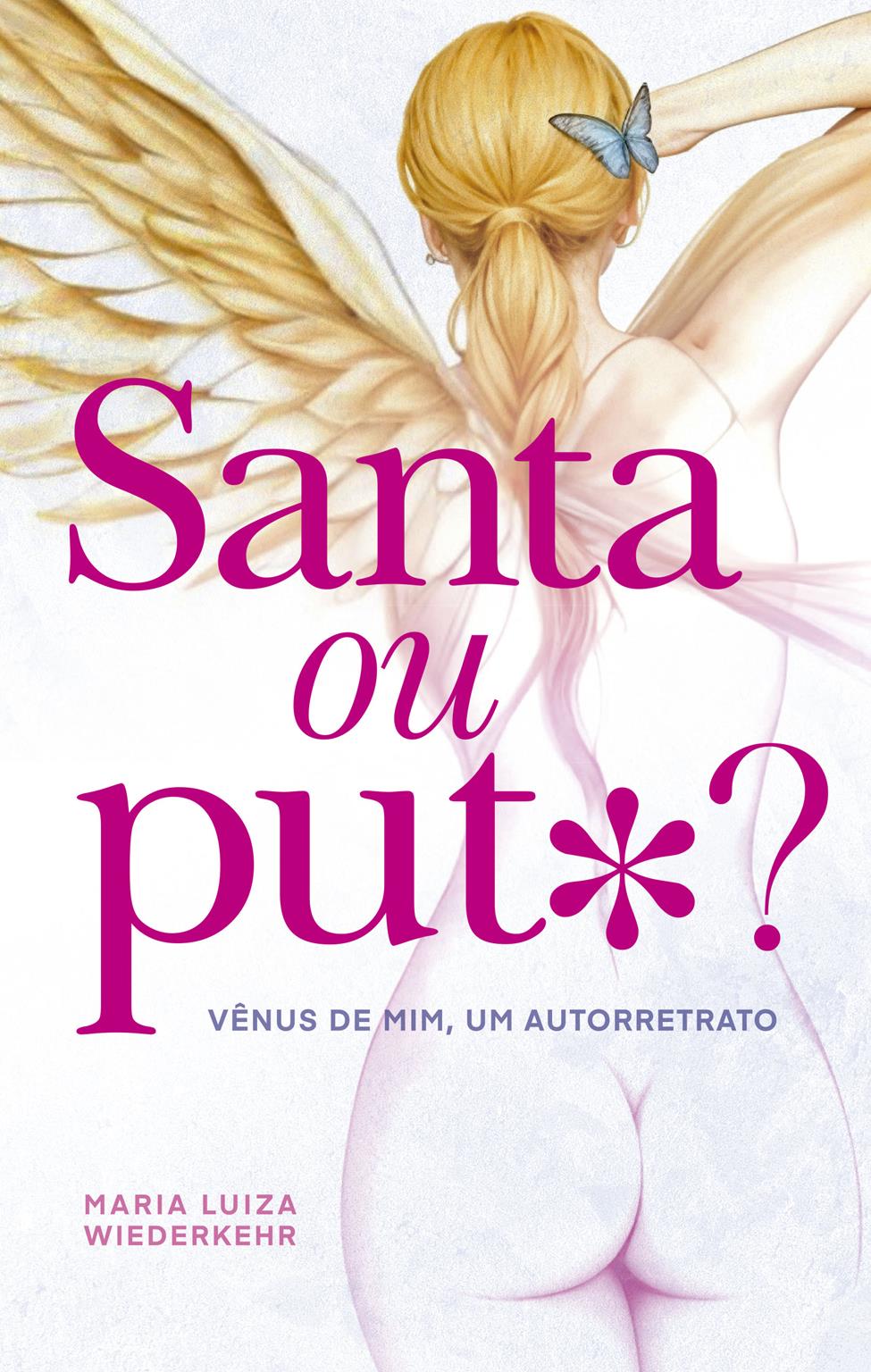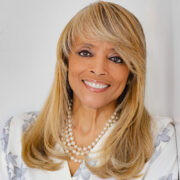In her debut book, Saint or Whore? – Venus of Me, writer and educator Maria Luiza Wiederkehr invites women to rethink the labels imposed by patriarchal society and embrace their authenticity. Mixing personal accounts, poetry and hand-drawn illustrations, the author explores female freedom amid social pressures, encouraging self-love and breaking with gender stereotypes.
Your book “Santa ou Puta?” addresses labels that society imposes on women. How did the idea of using these figures to discuss female sexual freedom come about?
The society in which we live is patriarchal and the paradigm of saint or whore is present in women’s lives even today, in the 21st century, in the third millennium. We have evolved in different sectors of society, but the rates of feminicide, violence, and protective legislation indicate that women still suffer gender discrimination.
Women are expected to behave submissively and in accordance with men in different groups, whether religious, political or social. To write the book, without confronting the imposed conditions, I looked for the characters we learn to represent in a society that imposes an overload of roles on women.
In this context, sexual and religious freedom is contaminated by dogmas of domination and submission for many women. In Brazil, Japan, Africa and the Middle East, we can see the distance between human beings and their desires, whether sexual, social or religious, and the liberation of their desires. I write, in a somewhat sarcastic way, that my dream is to see a pink smoke when a female pope is elected, for example, in the Vatican.
In the three chapters of your book, you mix personal stories with poetry and humor. How was the process of choosing these forms of expression to tell your story?
When writing the book, I realized that I needed to show my learning process, to rid myself of what society imposes on me. There is no point in reporting and confronting the current paradigms and dogmas. I needed to find a way to express a feminine way of writing and reading. As a woman, I can say that we like diversity, we are multifaceted, we have the power to generate life, to give birth.
Women play many roles and different characters in their routines. That’s why they like to have different ways of reading and enjoying their leisure time.
Instead of telling my story from the perspective of overcoming very difficult situations, where I could expose people I love, I decided to present ways of discovering myself as a Being, full of power and love for myself, in a self-portrait. It was interesting to convince the publishers about a lighter and more fun way of presenting the book, with chapters, recipes, stories. Our world is richer in possibilities and opportunities.
By traveling alone and freeing herself from social impositions, the book’s protagonist finds her authenticity. How do you think this process of self-discovery can inspire other women?
Instead of presenting ready-made and rational formulas for processes, as we see in so much literature, I decided to expose myself, in a process of discovery and personal experiences, without presenting any confrontation or victimization of what I experienced. In this way, I imagine I can help other people find their paths of self-discovery, without depression or victimization.
Your hand-drawn illustrations complement the content of the book. What do these illustrations represent in relation to the theme of women’s freedom?
Currently, what we experience most is the pressure to have mental health, but if we observe closely, the globalized patriarchal society where, growing indiscriminately 6% per year (a global index that the economy of countries imposes), or rates of professional growth, enrichment, productivity gains , etc. We can see that it is a rational and brutal way of survival. Women, then, who conquer their spaces in these societies, disregarding their essence, are the most demanded and demanded.
The book proposes moments of being with yourself, as a way of being in tune with this essence, hidden and forgotten. The feminine essence, which every Human Being possesses, has a beauty, in its essence, that allows moments of contemplation, creation, gestation of Life and Art.
That’s why, when writing the book, I felt the need to draw a woman’s body, draw wings, paint with my hands, compose a samba , look for recipes and family stories as a way of bringing out my essence and seeing a more feminine world.

You also bring a very light chapter, with recipes and celebrations of the art of cooking with love. What is the connection between these recipes and the protagonist’s journey of self-discovery?
The world in which we live in such a rational and structured way leads us to processes of continuous improvement, identification of flaws in processes, which makes us mechanized and ready to find flaws and errors, full of filters and antidepressants.
In personal relationships, we are the same way, trying to point out what we don’t want, what needs to be improved, the flaws and criticisms of others. Why not learn more and more each day to enrich our relationships with small acts of kindness, first and foremost to ourselves, such as saying good morning, complimenting our own body, smiling at the first glance in the mirror in the morning.
What can I say about family relationships, love and friends? The idea is to be available, to prepare dinner, to give someone a massage, for pleasure, for new ways of living. That’s what I did, first with myself and then with my children, love and friends. Today, as I write the book and have the courage to express my ideas through a work, a self-portrait, I feel that there is a more feminine way of living.
The title brings reflection and the content presents different ways, where, in a more feminine world we can live with – stress – agonizing and individualized, happier with our personal choices.
In addition to women, you also invite men to connect with female sensitivity and autonomy. How important is this male inclusion in the context of your book?
This is one of the best perspectives of the book, showing men our way of life. Women see opportunities where men see problems. Much more than women, men live with their “feminine side” repressed, hidden, raped by a behavior that demands demonstrations of masculinity, competitiveness, without allowing femininity to emerge.
This femininity is in all human beings, as Pepeu Gome and Baby Consuelo sang in 1983, in the song Feminino e Masculino: “Being a feminine man, doesn’t hurt my masculine side, if God is a boy and a girl, I am masculine and feminine…”
Caetano Veloso and Gilberto Gil sang in Super Homem: “No way, my feminine side that had been protected until then, is the best part that I have inside me now, it’s what makes me live…”
What was the experience of writing such an intimate and personal book like? Were there any challenges in sharing your own reflections and experiences?
It took me twenty years to write the book. From the title (which still causes strangeness and reflections, but does not cause indifference). I needed to believe in myself as a Woman and, as a Writer, to find, in literature, through self-portrait, a more feminine form, which would inspire people to discover themselves and live better with their choices.
Before the first publication, I had many friends convince me that the book would be a light and enjoyable work of seeking moments of pleasure and discovering our essence. There were moments of great conversation and learning.
You have a diverse career, working as a teacher, illustrator and composer. How did all these experiences influence the writing of your debut book?
The pleasure of learning and being ready for new experiences and challenges excites me. I am a teacher, a consultant for socio-environmental projects and a career and life counselor. Creating, composing, designing and participating in people’s development is what I like to do most. Being with myself, creating, gestating and sharing life and love experiences.
Through my work, which has always focused on education and the development of people, I have achieved results that allow me to live a comfortable life, a happy marriage, three successful children and four grandchildren who fill me with love and joy in living life. And a new perspective, where being a writer and being able to talk about a more feminine world is my purpose, as a career and life counselor.
Follow Maria Luiza Wiederkehr on Instagram





